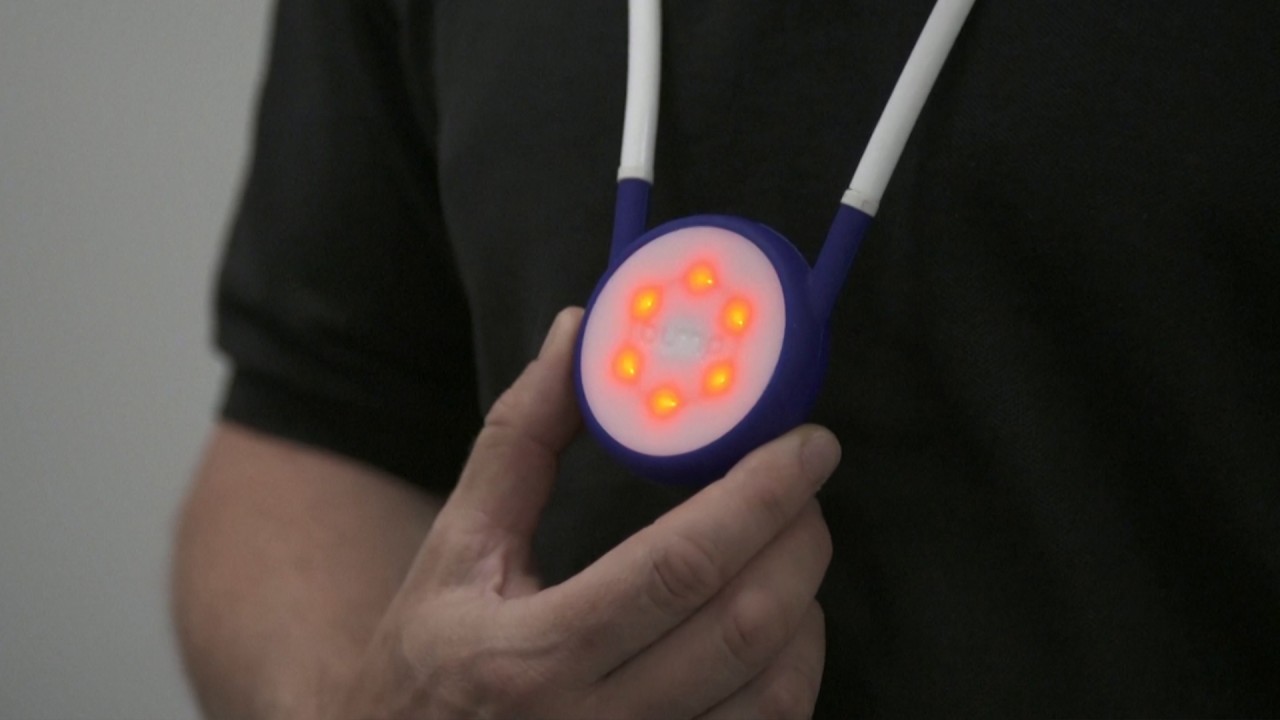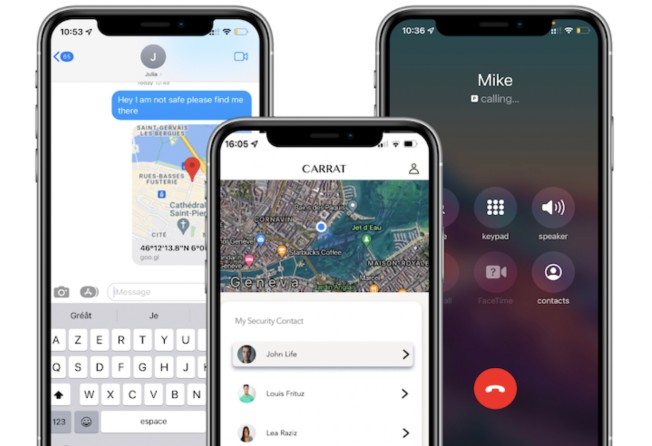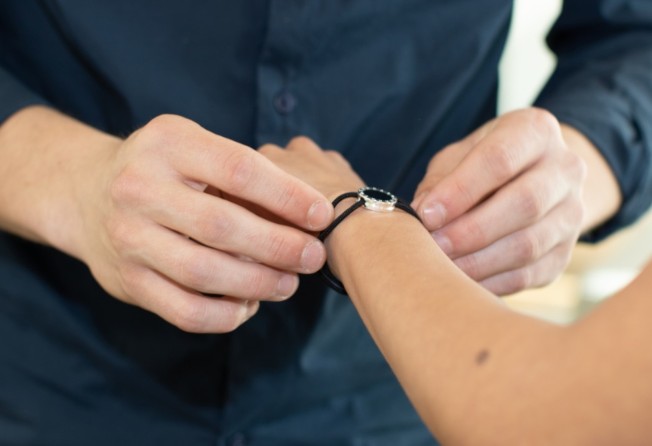
01:25
Flashing necklace alerts wearer to keep social distance

Alexandre Cerret will never forget the phone call he received three years ago, when what was supposed to be a regular evening turned into a nightmare.
He was living in central Paris at the time, waiting for his girlfriend to come home from a night out near the Eiffel Tower. She was late and he was worried.
When he finally received her call, she told him that she had been stopped by a stranger as she walked to her car, who then attacked and raped her.
Unfortunately, Cerret says the police investigation was severely hampered by a lack of evidence, and the case did not go through as not enough proof was given.
“We didn’t have security cameras in the street, we had no material evidence, this was a big issue when we reported it to the police,” Cerret, now 23 years-old and living in Geneva, told the Post via a Zoom call.
As he helped his girlfriend through the healing process, he could not shake off the urge to do something to help those who want to protect their loved ones.
After three years of preparation, he and his team of five launched Carrat, a piece of wearable tech in the form of a stylish bracelet with a connected mobile app, which alerts emergency contacts once activated.
By pressing the face of the bracelet twice, an emergency phone call is made to the user’s principal security contact. Additionally, a message with the user’s GPS location is sent to five phone numbers.
It works anywhere in the world as long as there is a Bluetooth connection, according to Cerret.
On crowdfunding site Kickstarter, Carrat successfully rallied 124 backers to chip in 20,558 Swiss francs (US$21,330) collectively for a one-month campaign that ended on September 30. Each bracelet, composed of a black silk band with a gold and silver ring around coloured enamel, weighs 10 grams, with a wholesale price of 129 Swiss francs and a projected retail price of around 229 Swiss francs.
Cerret says he was inspired by US-based invisaWear, a smart tech company founded in 2016, which also makes jewellery including bracelets, necklaces and key chains that can summon emergency contacts and the police with a safety button disguised as a charm. As opposed to the “thick” and “uncomfortable” description of ivisaWear in a review of the product on US news site Gizmodo, Carrat’s bracelet is “light and practical” that something users can wear at all times, he said.
Globally, conversations about women’s safety have reached new heights in recent years. Four out of five women in the UK said they felt unsafe walking alone after dark in a park or other open space, compared to two out of five men, according to a study last year by UK-based End Violence Against Women Coalition.
This June, the Chinese public agonised over the brutal attack on four women by a group of men in the northern city of Tangshan, driving flocks of Chinese women to seek a greater sense of security by taking self-defence classes.
Start-ups with a vision to protect women are few and far between outside the US for now, where there is She’s Birdie, Sabre – which make portable alarms – and apps Rescu and Noonlight. But this landscape may change in future, according to market research firm Technavio’s August report, with the Asia-Pacific region set to contribute 36 per cent of industry growth from 2021 to 2025.

However, when it comes to consumer adoption, there is a separate challenge. The international wearables market is facing headwinds, and wristbands are an at-risk category, according to a report by market research firm International Data Corporation (IDC) in September.
Moreover, in China, it has become common practice for ride-hailing apps like Didi to carry in-trip audio recording and upgrades to an in-app emergency mechanism after a slew of incidents in 2018, including one where a female passenger was raped and killed by her driver.
The country with a population of 1.4 billion has quite a few missing pieces in safeguarding women, experts said.
“On an administrative level, we need a cross-function mechanism for stakeholders like the transport system, the medical system, public security bureaus and employers to work together,” said Wang Xiaozhe, who spearheads diversity, equity and inclusion efforts at global tech consultancy ThoughtWorks’ China office. “Culturally, there is a lack of empathy towards females, which may be derived from the lack of gender education and legal protection.”
Wang believes Carrat’s feasibility in China depends on whether it can find the right product scenario, noting that users can use their phone or an app instead of a bracelet.
Cerret is aware of the potential limitations and wants to sell more than just a bracelet. “The bracelet is really a short-term solution, this cannot save you [on its own]. This cannot mentally help you,” he said. “Even after the bracelet is put to use, you still need to be supported [if you have been attacked].”
Beyond the product, he is aiming to develop an educational programme that could roll out around the globe and is currently in talks with undisclosed organisations in India, Pakistan and Hong Kong. He has started raising funds for the company, while planning to set up a separate foundation that manages the education programme.
In the meantime, he is continuing to support his girlfriend and help her to feel safe and go out in public again. She is not involved in the business and does not want to be named, he said.
“We want to [stop incidents from happening] at the prevention point, which comes with the bracelets, but also come with educating people,” he said.